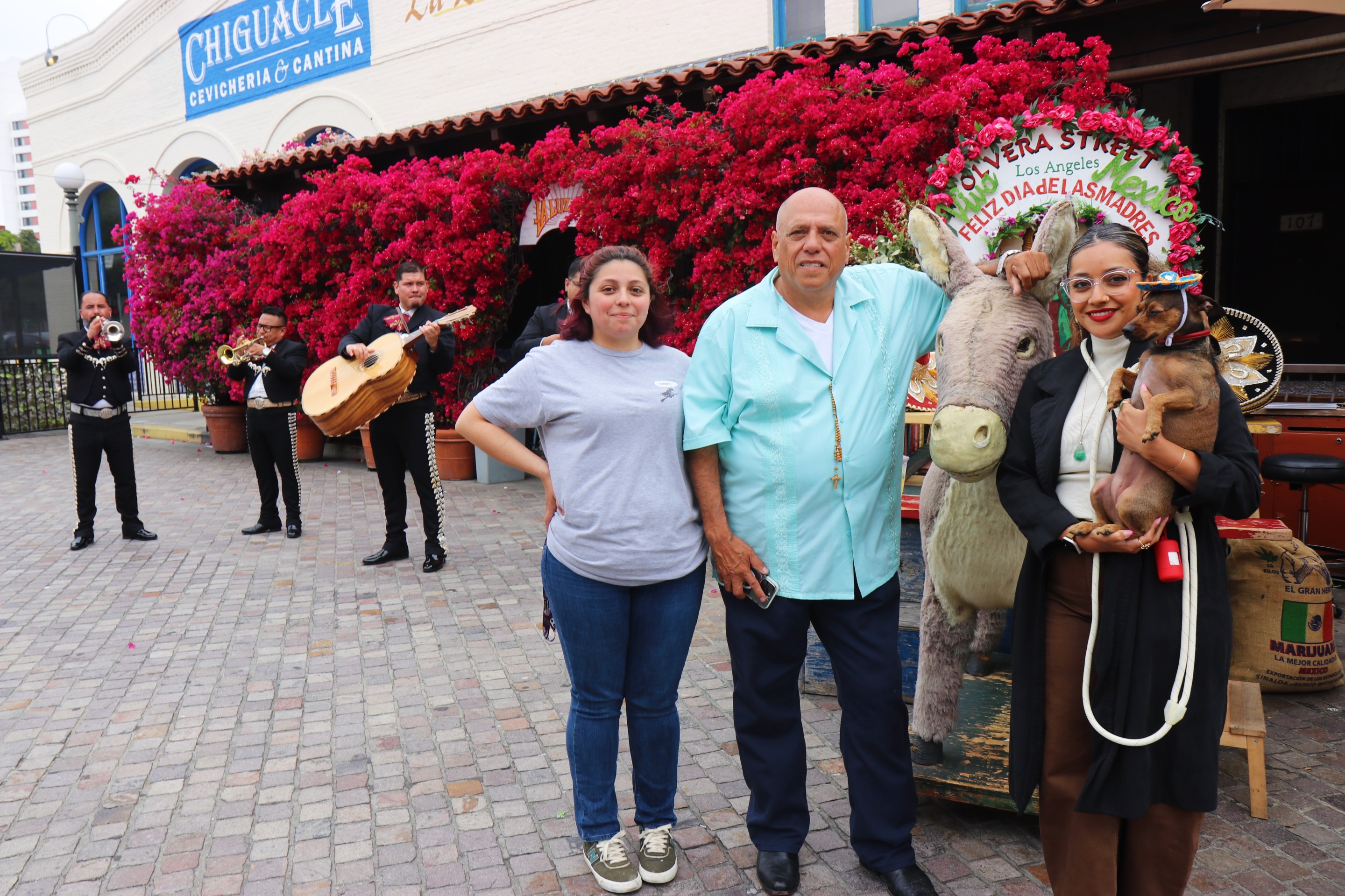Last week, Eugenia Nicole Macias walked down Placita Olvera on her way to her family's photo stand, a walk she’d taken an untold number of times in her life. Under the colorful papel picado that adorns El Pueblo, she pointed and said, “We used to run around here.”
In the 1960s, her grandfather and grandmother, Jesus "Don Chuy” and Maria Trancito “Tancho” Hernandez, established La Carreta, the home of the famed stuffed donkey known as "Jorge."
This location holds many memories for her and others in her family. La Placita was her playground as a kid. It’s a place engraved in her family's DNA. She even said her parents met here.
Growing up, she remembers running around each stand with her cousins while her family attended to customers waiting to snap a photo with Jorge. People from all walks of life have stopped to immortalize their visit to Olvera Street, the birthplace of Los Angeles, by posing with the famed stuffed donkey.
But now the fate of the family-owned business and its traditions are in jeopardy. According to Richard Hernandez, the family member who operates El Burro, the news of their eviction came during a time of great grief.
“My mother unexpectedly died, and I was served with a notice to vacate five days after her death,” said Hernandez. “So we’re trying to round up as much support as possible for the people that love this place.”
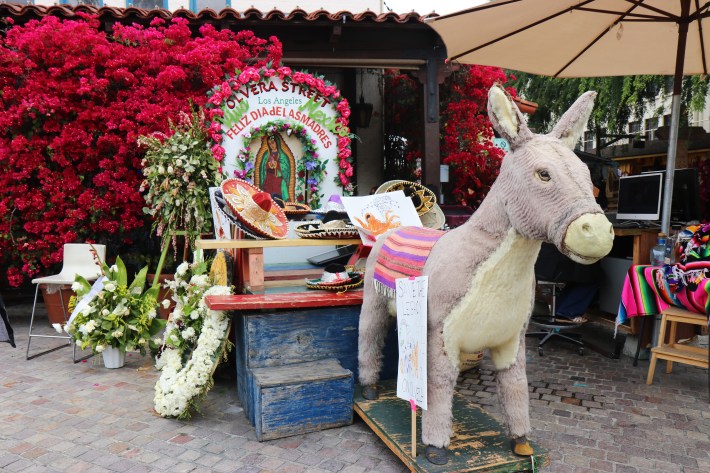
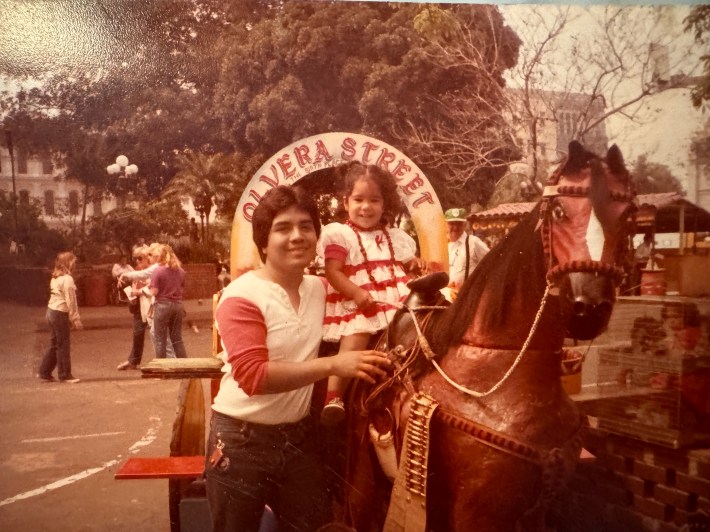
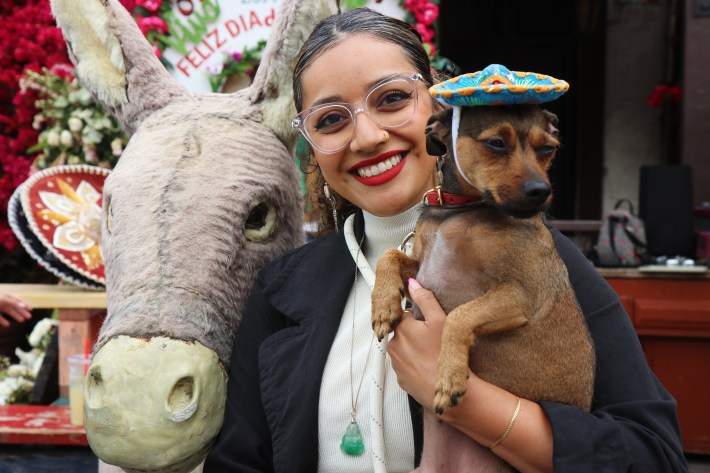
The reason for the eviction is due to a contract issue. No one else in the family was listed on the paperwork. Therefore, when the family matriarch passed, an expiration date was set on the contract.
“The pueblo claims there’s a clerical error with our business contract; however, my family owns another business here and we drafted paperwork for both back in 2019 to change ownership and add our other family members,” explained Macias, still shocked at the abrupt eviction.
She said that for whatever reason, there was no problem with updating the contract for their other business, but somehow, La Carreta’s contract was never updated.
The eviction was set to occur last Thursday, but the family said they are not going anywhere.
The day they laid to rest this pivotal woman in their family, they were set to meet with El Pueblo to dispute and discuss their eviction. The entire family showed up only to find that their item was taken off the agenda. While they were able to make public comments, Macias said they hadn’t had a proper discussion.
L.A. TACO reached out to El Pueblos General Manager Arturo Chavez regarding the contract and agenda items being removed, but we have not received a response.
Hernandez, who has interacted with hundreds of people while working in the family business for 37 years, can’t imagine La Placita without El Burro. After all, the birthplace of L.A. is also the birthplace of many immigrant and family-owned businesses like theirs.
“I've been a part of people's memories, and I feel blessed. This little business means the world to me,” he says. “When people come up to me and show me pictures of when they were five, and now they come with their kids, it's beautiful.”
Although the family was still grieving, they quickly mobilized and reached out to their community for support. Macias and other family members posted videos online and flyers that provided information on when their meetings with El Pueblo would happen.
They also created a petition asking everyone to sign and share their memories and photos. Over 4,000 people have signed and shared photos dating back to El Burro’s first days.
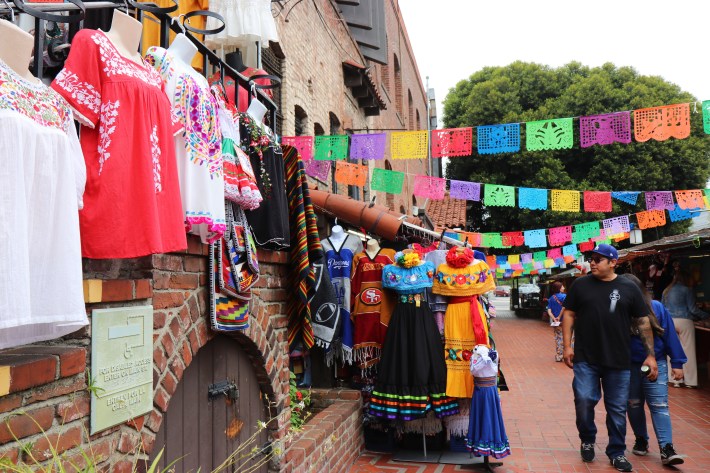
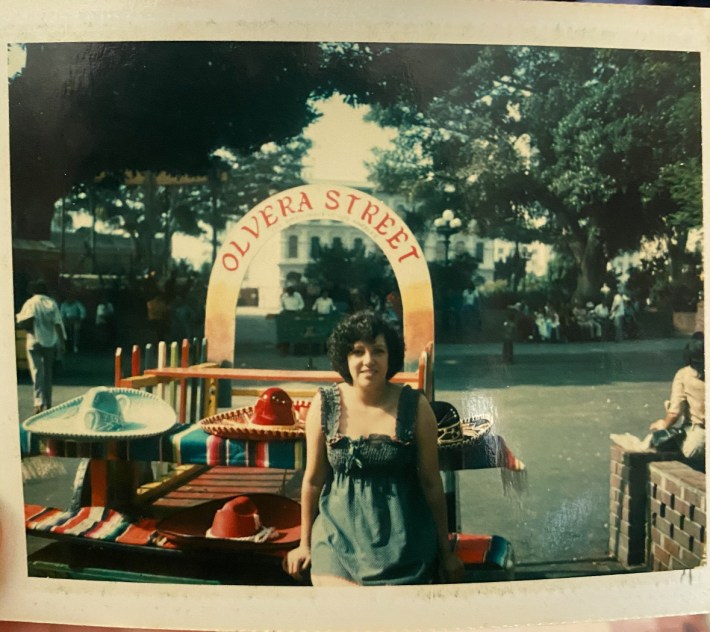
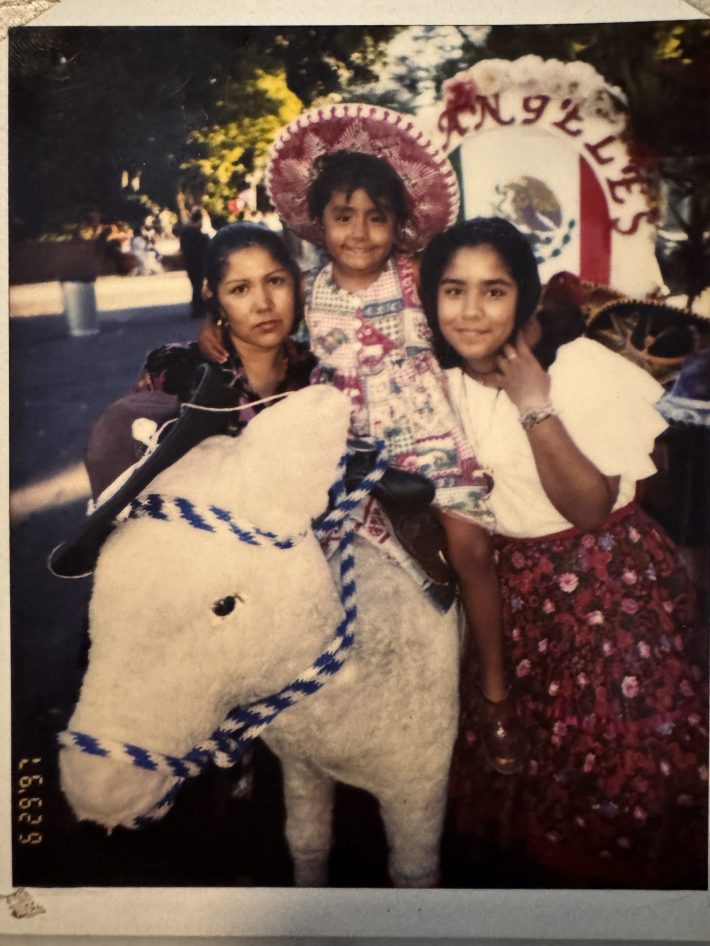
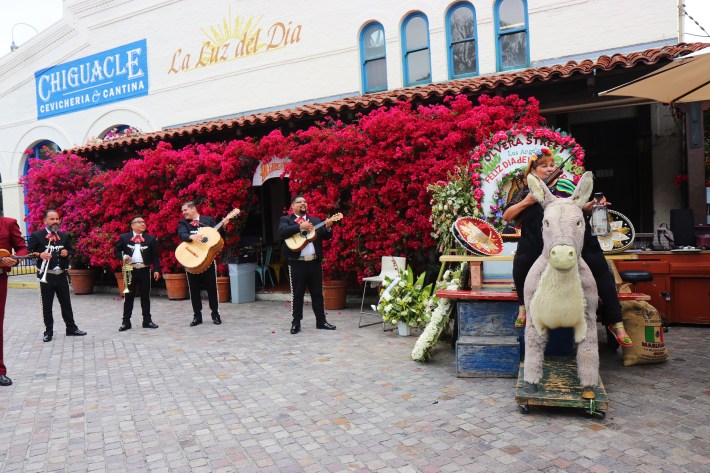
Last week, as mariachi serenaded those supporting El Burro, people talked among themselves, expressing sadness after hearing about the potential removal.
Mercedez Cruz, who has been singing and performing at La Placita for the past 23 years, visited El Burro that Thursday.
After getting the crowd to chant as she danced, she stepped aside for a break and told L.A. TACO, “Es una tradición muy bonita” (“It’s a beautiful tradition).”
“Not every place has a burrito, and it is very sad and unfortunate that they want to move it,” she continued. “It would be a catastrophe for tourism, locals, and for the people who come to see it. Without the donkey, it would not be the same attraction.”
David Myers, a nearby resident, vaguely remembers his first visit to Placita Olvera in 1962. Since then, this location has turned into his family's meeting ground. Whenever they headed to a Dodgers game, Myers said they would leave early enough to stop for food and drinks at La Placita.
While he knew about El Burro, he said he himself never took a picture there but understands the value places like this hold.
“I’m from L.A. We like our traditions here, so anything to keep this kind of thing going, I mean, it’s important to so many people, obviously,” he said, pointing to the crowd. “You should want to keep these things going as much as you can.”
Among the crowd was also Christian and Alisa Lopez, who stopped at El Burro to take a picture with their baby. As they scrolled through their photos, waiting for the perfect one to select, they said El Burro was a special place for them. Christian first visited in 1992 as a child.
“They took my picture here,” he said. As an adult, he returned to have his daughter's picture taken.
“I’m sure many people from L.A. are trying to keep and cherish these memories. Other generations should be able to come back; this place preserves our culture."
Macias's cousin, Brenda Rivera, was also at La Placita last week, supporting her family's efforts. Rivera said she's afraid that if her family's business gets removed, the same thing will happen to other merchants who operate there.
“Not only is this part of my family but this is part of the L.A. community. We’re not just here for us. We’re here for everybody else, too,” she said. “You don’t come to Placita just because. You come to experience all the individualities of all these little shops here, including El Burro.”
“People now see El Burro as part of a historical landmark along with all of La Placita and that’s what our family is trying to preserve, the traditions, the merchants,” Macias added. “Los Angeles is getting gentrified everywhere, and this is one of the last places that gentrification has not completely taken over yet.”
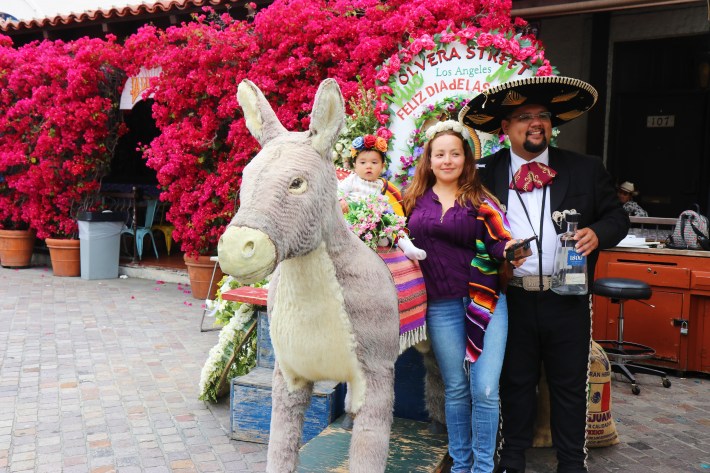
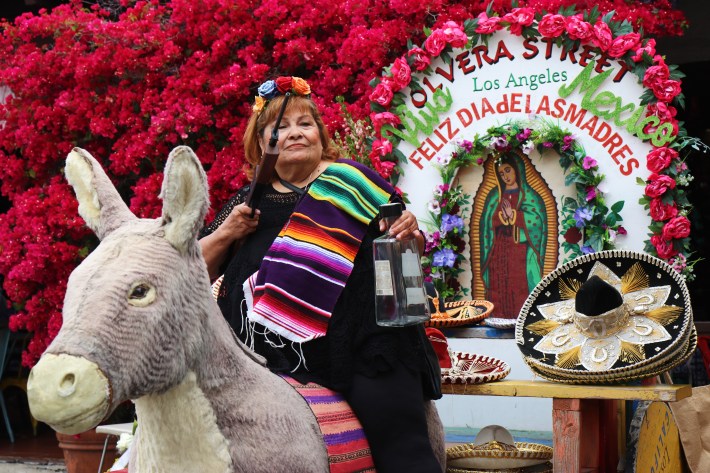
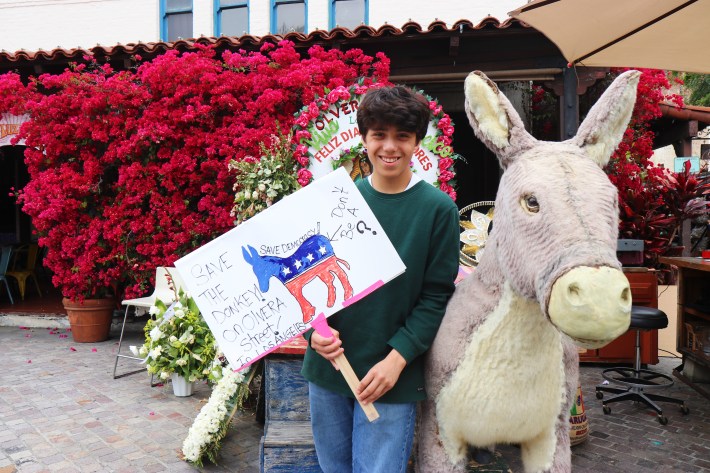

Macias said her family business is not the first to face removal, whether due to contract issues, lack of business, or other reasons. Recently, La Golondrina restaurant, which has been around since the 1930s, posted on Instagram how they filed for bankruptcy and could not continue their lawsuit against the City of Los Angeles. A lawsuit that they filed after dealing with plumbing issues.
With these businesses closing, long-time La Placita residents and merchants worry about this cultural hub's future.
“A couple of years ago, they tried to get rid of placita to build apartments, and it was saved, but nothing here should be replaced by apartment complexes," said Rivera. "Unfortunately, if they get what they want, this will turn into just another Starbucks."
M. Rosalind Sagara, the neighborhood outreach manager for Los Angeles Conservancy, a non-profit dedicated to preserving historic places in L.A., said bringing attention to long-standing businesses, especially those that are family-owned, is important.
“Recognizing the importance of these types of places is so important because it shows the city's diverse cultural heritage, and these spaces make up what's special about L.A.,” she said.
At their non-profit, they have established a program that helps legacy businesses like El Burro and La Golondrina bring light to their efforts. Their legacy program allows the community to inform them about businesses that they feel deserve recognition and preservation. She said saving a business that is considered a historical or cultural landmark can look different, and the battle is not linear.
“A save might be a successful landmark nomination for a site or a new policy that has a positive impact on many historic places," she told L.A. TACO. "We aim to share existing preservation tools and strategies that we have found helpful in saving historic places, but sometimes these alone are not enough. When this is the case, we try to share outside resources that may help.”
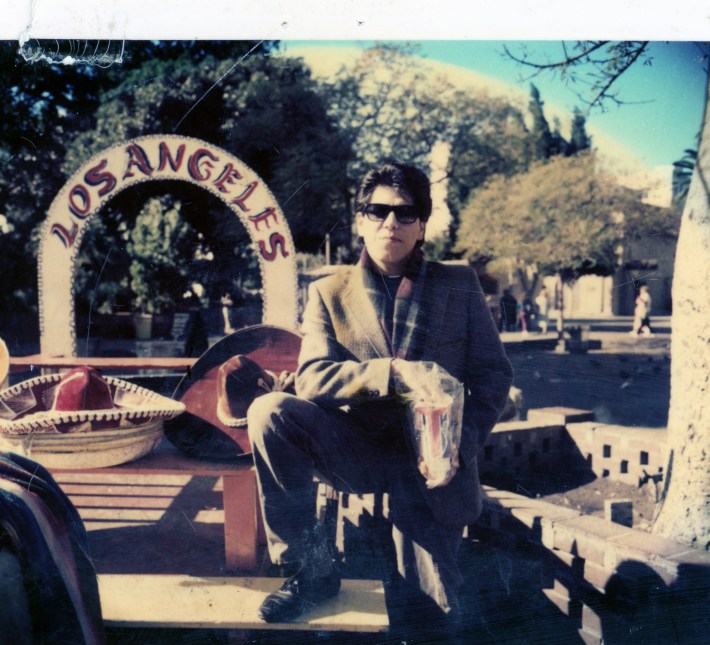
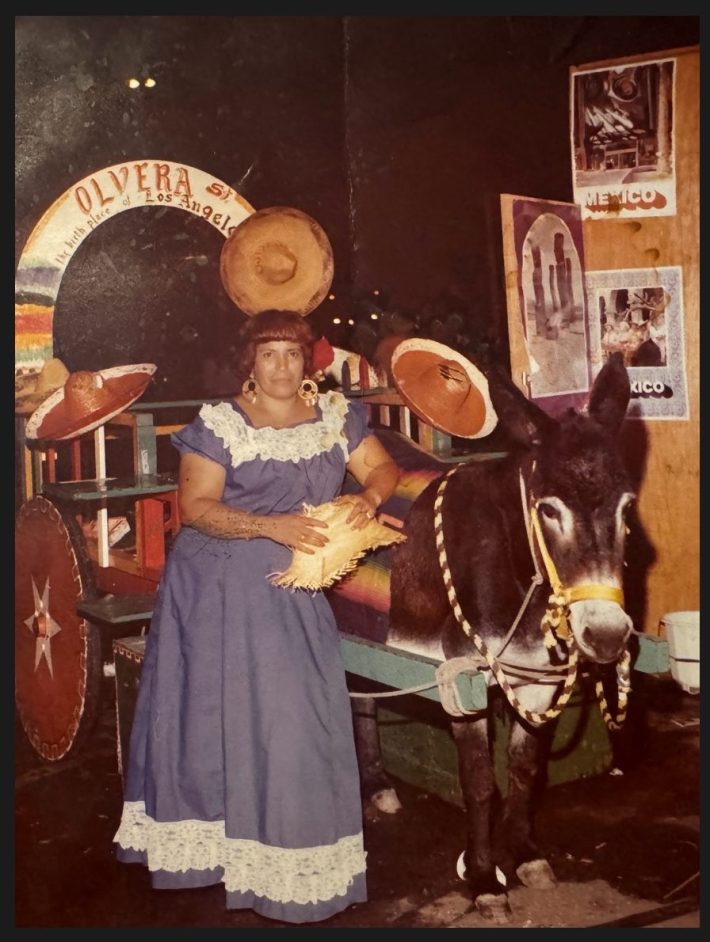
Yesterday, the Hernandez family returned to El Pueblo’s scheduled meeting, and they pleaded with the board to save El Burro. Council member Kevin de Leon visited Macias and her family last week, and he submitted a copy of a motion asking the board to reconsider the lease contract.
“It’s been part of the fabric of this neighborhood. To me it's odd that they want to evict them. I think it's in poor taste,” said De Leon to reporters last week. “Why do we have to go out of our way to make it much more difficult?”
According to NBC, a Los Angeles City Attorney’s deputy told El Pueblo’s Board of Commissioners that they had no jurisdiction over lease contracts. This means that the family's fight to save El Burro is far from over.
“This place builds community, and it’s integral to Los Angeles. It’s a huge part of L.A.'s identity. We’re not going anywhere. Our grandmother raised us to make noise,” said Macias.
